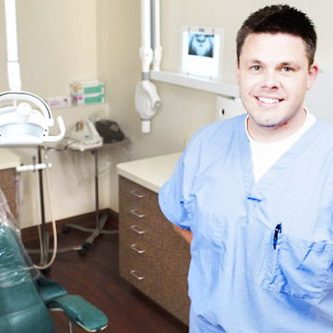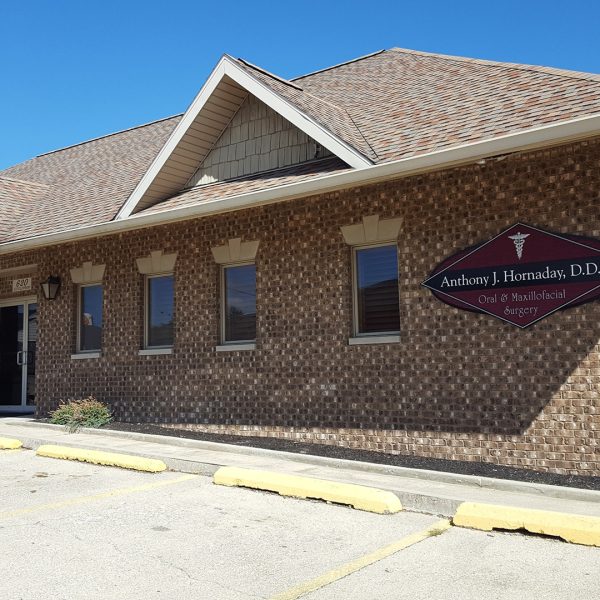Wisdom Teeth in Muncie, IN
Third molars, commonly known as wisdom teeth, are often removed during the teenage years; however, removal can occur at any age. Wisdom teeth are the teeth located directly behind your second (12 year) molars and are typically not visible in your mouth due to impaction. The removal of third molars is done comfortably in an office setting with varying levels of sedation, depending on your comfort. After your procedure, you will be given written post operative instructions regarding the care of your mouth following your procedure.
This procedure is typically done in the office, but it may be done in the operating room, depending on the patient’s medical history. The removal of wisdom teeth typically takes 15-20 minutes for the procedure and patients can expect to be in the office approximately 45 minutes the day of surgery. If sedation will be used, the patient will need a responsible adult to accompany them to and from the appointment. Recovery for time for the removal of wisdom teeth ranges from one day to a week – this will be dependent upon your particular situation.
Below are reasons your general dentist or orthodontist recommended wisdom teeth removal.
- Pain: As your wisdom teeth develop, they can push forward on your other teeth and tissue, causing pain.
- Pericoronitis: If any of your wisdom teeth partially erupt into your mouth, they can become covered by a small flap of tissue. This flap of tissue traps food and debris and causes a localized area of inflammation and/or infection overlying the tooth. Ultimately, the only cure for this is to have tooth removed. If pericoronitis occurs, you may be placed on antibiotics prior to the removal of the tooth, depending on the severity of the situation.
- Abscess: A wisdom tooth can become abscessed (infected) just like any other tooth in your mouth due to decay, pericoronitis (as described above), or an associated pathology such as a cyst.
- Cysts and Tumors: Cysts and benign tumors can grow in the tissue associated with your wisdom teeth, especially when they are impacted. These cysts and tumors cause severe bone damage in the jaw over time.
- Periodontal disease: You can have a localized area of bone loss in-between your wisdom tooth and the tooth in front of it. The most common cause of this is difficulty cleaning the area, which leads to inflammation and, ultimately, bone loss. If the wisdom tooth is not removed in time, you may risk loosing the adjacent tooth as well.
- Orthodontics (braces): Your dentist or orthodontist may request that you have your third molars removed prior to starting braces. This will make moving your teeth easier in certain situations.
- Fillings or crowns: Your dentist may require that you have your third molars removed if they will interfere with the placement of a filling or a crown.
Prior to having your wisdom teeth removed, we advise that you schedule an initial consultation appointment first. You will have questions regarding the procedure, as well as financial questions that cannot be answered appropriately and accurately over the phone. During this appointment you will meet Dr. Hornaday and his staff, discuss the procedure and sedation, and discuss financial and insurance arrangements. To set up an appointment, please call our office at (765) 289-9705, and we will be glad to assist you.

Meet Dr. Anthony J. Hornaday

Dr. Hornaday is a Hoosier through and through.
He grew up in East Central Indiana his entire life. He graduated from Tri-Central High School (Sharpsville, IN) in 1992. He then went on to attend Indiana University in Bloomington, IN, where he completed his undergraduate degree in three years, receiving a Bachelor of Science in Biology in 1995. In 1999, he received his Doctor of Dental Surgery (D.D.S.) from Indiana University School of Dentistry.
The Proof is in Our Patients
Our Office
Address
Working Hours
Monday
8:30 - 5:00
Tuesday
8:30 - 5:00
Wednesday
9:00 - 3:00
Thursday
8:30 - 5:00
Friday
8:30 - 5:00
Saturday
Closed
Sunday
Closed
Phone
